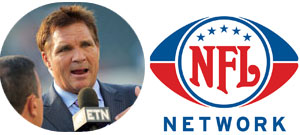PED POLICIES: A CONTRADICTION FOR DECADES
Al Thompson
 The Eagles were 5-1 in games Lane Johnson started, 2-8 in the ones he was out of lineup. Photo by Andy Lewis/contrastphotography.com
The Eagles were 5-1 in games Lane Johnson started, 2-8 in the ones he was out of lineup. Photo by Andy Lewis/contrastphotography.com
Every year we watch as athlete after athlete gets paraded in front of a camera to talk about his or her positive test for some kind of performance enhancing substance.
We get an apology most of the time, occasionally the athlete is defiant, but in end it is the same tired act.
Athletes must be held accountable for their actions with regards to PEDs no doubt, but is it really all on them?
Student-athletes in America and around the world for decades have grown up in an atmosphere of contradiction.
While most pro and top amateur sports drug test religiously today, there are massive conflicts in policy towards steroids from the “anything goes” policies of major strength competitions shown on television world-wide, to head-scratching decisions made at the White House.
In the July 2012 edition of the New Yorker Magazine, award-winning writer Burkhard Bilger wrote a piece on “The Arnold” Fit Expo and its steroid culture.
The enormously popular event is held in Columbus, Ohio every year and is owned and operated by Arnold Schwarzenegger (In 2014 and 2016 “The Arnold” was rebuked by the Pennsylvania House of Representatives in separate resolutions for its lack of testing for steroids in its many strength events).
In the story Bilger talks about that contradiction:
“The bigger the body, the bigger the draw,” he wrote. “When it comes to steroids, public censure and private acceptance have tended to rise in parallel. In 1998, after Mark McGwire admitted to doping while setting his home-run record, he was attacked in the press and later blackballed from the Hall of Fame. But sales of steroids skyrocketed. Eight years earlier, George H. W. Bush had both criminalized the use of steroids and appointed Arnold Schwarzenegger—the world’s most famous steroid user—chairman of the President’s Council on Physical Fitness and Sports.”
If that is not enough to confuse any young athlete advancing in the world of sports about what is right or wrong with PEDs, what is?
What these conflicts have accomplished are to confirm we live in a society that teaches young athletes that steroids are OK, just don’t get caught.

NJSIAA Executive Director Steven J. Timko says he would welcome a course on steroids and other performance enhancing substances including supplements. Photo from NJSIAA.
As they were preparing for the 2016 season, the Eagles learned their standout offensive tackle Lane Johnson was being suspended for the second time for violating the NFL’s policy on performance-enhancing substances.
His 10-game suspension would have a dramatic impact on an Eagles season that started with so much promise.
The Birds finished with a 7-9 record but were 5-1 in the games Johnson started and just 2-8 in the ones he was out of the lineup.
Johnson was distraught and lashed out at the league saying he bought the product he was suspended for online, not uncommon for players, and ran the label through the “Aegis” app provided by the NFL Players Association (NFLPA).
The League and the NFLPA informed Johnson and his agent Ken Sarnoff that it was his responsibility for anything he puts in his body and that he could have had the supplement lab-tested for free by the NFLPA.
His mistake also cost him quite a bit financially.
Last offseason, Johnson signed a five-year, $56-million contract that included a $10-million signing bonus and $35.5 million guaranteed. His base salary for the 2016 season was $675,000. He forfeited $421,875 of his pay and the suspension also nullified his guaranteed money.
Johnson admitted he felt some resentment from his teammates.
“I think some guys are disappointed,” Johnson said. “They felt I left them out to dry, and I did.”
He said there weren’t actual words spoken by his teammates, their disappointment was obvious.
“I just kind of felt it when I walked in,” Johnson said at his locker the week he came back. “But it’s over now, the past is past, all I can do is move on from it.”
Over the final two weeks of the season, you could see the anxiety on Johnson’s face after games and during media sessions in the locker room during the week.
He knew his suspension had a significant impact on the Eagles and their fans about the season.
“It weighs on my mind all the time,” Johnson said. “Even right now when I’m with the team. A lot of things could have happened differently with the season. I’m not saying one person could have done that much but I feel like I could have helped the team. I’ve been with the team four years and only played three.
“I kept ****ing myself up, shooting myself in the foot,” Johnson continued. “I have to learn, grow and mature…and get myself right.”
Since steroids and other performance enhancing drugs and substances found their way into athletics almost four decades ago, the only solution sports officials seemed to come up with is to test for steroids, then punish the athlete if he or she fails the test.

Daughin County coroner Graham Hetrick says the search for glory leads many young people down the path of illegal drugs including steroids. “Fame is the aphrodisiac for this whole thing.”
Photo by TJ Engler
In the months leading up to the 2016 Olympics, the World Anti-Doping Agency (WADA) suspended a massive amount of Russian athletes for testing positive for banned substances.
The Olympics are now going back and retesting athlete’s samples and suspending competitors from as far back as 2008.
The agencies that test cyclists have had breakthroughs in testing techniques to go along with extraordinary persistence, as was the case when multiple Tour de France champion Lance Armstrong was finally brought to justice for years of doping.
These are powerful steps for sure, but what is being done in the way of changing the corporate and academic culture towards steroid use, as well as passing on knowledge of the potential health risks that come from using PEDs and supplements?
“I think they’re getting educated now,” Johnson said when asked that question. “As you see more players getting popped, people are learning more. I don’t know about high school but in college they need to be educating. Hopefully I’ll be an example for everybody.”
Johnson said he is self-educating himself about drugs and supplements. And his answer is simple.
“I’m not taking anything,” Johnson said. “Just food. You can get everything you need from food. There’s a lot of healthy stuff for you that doesn’t taste good but helps.
“There’s a lot of stuff that causes inflammation in the body…red meat, milk…there’s really a lot of food you need to avoid. Inflammation is really the biggest factor for whether you feel good or bad. It’s such a long season. And you’re going to get banged up.”
What about high school? The only State that has a high school ruling body with a drug testing policy is New Jersey.
Unfortunately there have been contradictions there where there should be none.
In 2005, then Acting Governor Richard J. Codey issued Executive order No. 72 that contained 19 elements of a mandate that empowered the New Jersey State Interscholastic Athletic Association (NJSIAA) to “develop and implement a program of random testing for steroids of teams and individuals qualifying for championship games. This program shall commence with the 2006-2007 school year.”
NJSIAA Executive Director Steven J. Timko reports that his Athletic Association has complied with the Executive order and conducted testing for illegal PEDs since it was mandated by Governor Codey in 2005.
Timko’s testing policy was backed up by over six athletic directors and/or school officials throughout South Jersey.
Then there is the contradiction. The part of Executive Order 72 that pertains to the New Jersey Department of Education’s role with providing very specific educational information with regards to steroids and other illegal PEDs to coaches, athletic directors, trainers, student athletes and others in the scholastic athletic community appears to have never been implemented, at least to the level the Executive Order mandated.
While the NJSIAA has been testing student-athletes for over 10 years in compliance with Executive Order 72, the Department of Education has not done much of anything in the decade since it was created.
Those same Athletic Directors and officials – plus the NJSIAA – all stated, to the best of their knowledge, that there are no active programs in place to teach athletic directors, coaches, student-athletes and others about how steroids and supplements work, or the health risks involved with ingesting steroids and other PEDs as stipulated in the Executive Order.
The school officials all said the Department of Education did not provide any actual guest speakers at any schools to talk about steroid use and the risks involved as stipulated in the Executive order.
There was no mention of the Department of Education developing an actual training program for high school science teachers, student assistant coordinators and school nurses on the harmful effects of steroids and performance enhancers as stipulated in the Executive Order.
Officials at NJSIAA said the Department of Education never contacted them to “develop a mandatory steroids and nutritional supplements training program for all high school and middle school coaches. Such programs shall include workshops and expert speakers” as stipulated in the Executive Order.
These school officials all knew about the drug testing policy for steroids that was born with Executive Order 72 because the NJSIAA has enforced it.
While the officials all knew about drug testing, none of the ADs or officials spoken to – outside of the NJSIAA – said they had never heard of Executive Order 72.
Neither did the staff members of the elected officials who sponsored New Jersey Resolution Nos. AR212 & SR115 (co-sponsored by Assemblymen Daniel R. Benson, 14th District and Joe Danielsen, 17 District).
The resolution calls out organizations that promote and glorify steroid use such as Schwarzenegger and IMG, the massive sports marketing company that owns and operates the “World’s Strongest Man.” It also calls for education about PEDs at the high school level.
Why would they put that in the resolution if there was an Executive Order in place mandating the same thing already?
David Saenz Jr., Press Secretary for the NJ Department of Education did respond to questions about his department’s compliance of Executive Order 72, but could only come up with general policies in place by the Department of Education about all illegal drugs.
Saenz was unable to produce any real curriculum additions to teach about the potential health risks of steroid use that the Executive Order asked for.
Timko said he was happy with the program of testing student-athletes he has been enforcing.
“I think that sends a major message,” he said in a recent phone interview.
While it may send a major message about steroids, is there a message there for student athletes regarding supplements that can be legally purchased at a store or on line?
“I am open to anything that will help our student–athletes,” Timko said. “Right now there is something that we do with Drug Free Sports.”
Drug Free Sports has a website (drugfreesport.com) that Timko says parents can contact to get information about supplements and which ones could possibly produce a positive test.
The steroid testing by the NJSIAA over the years has not seen many student-athletes test positive. Timko is more weary of supplements, because it is legal to buy them.
“To me the thing that concerns me as much as kids that are doing steroids is supplements,” Timko said. “Kids can go into any [supplement] store and take something because they can buy it over the counter and think they are going to be okay if they are tested.”
Timko said he would welcome anything that helps kids learn about what they put in their body.
“Could there always be more information? No doubt,” Timko said. “Would a course or something be beneficial? No doubt. Would a curriculum in schools be helpful? No doubt.”

Governor John Kasich attended the dedication of a stature of Arnold Schwarzenegger, whose strength events have been rebuked in PA because of illegal PEDs and steroids.
Photo from muscleandfitness.com
Today’s student-athlete gets hit with conflicting messages every day.
Ohio Governor John Kasich openly approves of the rebuked Arnold Festival, normalizing what is basically a four-day event that glorifies the steroid culture.
Yet Governor Kascich supports programs that have to do with other illegal street drugs, just not steroids.
Schwarzenegger campaigned for Kasich’s run at the GOP Presidential nomination in 2015 & 16. Kasich in 2014 appeared at re-dedication of a giant statue of a young Schwarzenegger, in a full speedo body building pose.
The trickle down effect from endorsed events like “The Arnold and “World’s Strongest Man” owned by IMG Worldwide, are the hundreds of qualifiers for these strength events – that can touch any sport – that basically act as trade shows for young people to be introduced to the dark world of steroids.
A young person may be thinking…“It’s got to be OK if all these famous, powerful people and big companies back them…right?”
Daughin County (PA) coroner Graham Hetrick is a voice from the opposite direction.
Hetrick was the coroner who certified that professional strongman and Pennsylvania resident Mike Jenkins, a former NCAA college football player (JMU) who won “The Arnold” in 2012 and appeared in three consecutive “World’s Strongest Man” finals, had accidentally killed himself by poisoning his body from long term steroid use.
Jenkins died at the age of 31 of a massive heart episode in front of his wife on Thanksgiving Day 2013.
The events Jenkins competed in were all condemned in Pennsylvania (see previously mentioned resolutions) for their lack of steroid testing, rampant steroid use and high fatality rates.
Hetrick, after reading the 2014 resolution, pulled no punches when he talked about the people and organizations that allow and/or promote steroid use.
“It’s certain that long term use of steroids is going to injure the body,” Hetrick told Footballstories. “And if it’s certain and you’re encouraging people to do it, it’s no different than someone standing on a street corner and selling illicit drugs…and we put them in jail. It’s the same potential, you know you are distributing something that is going to do them great harm.”
Hetrick said the allure of movie stardom enjoyed by steroid-fueled actors such as Schwarzenegger and Sylvester Stallone, is the carrot that drives many people towards the “Dark Side,” a common term used by steroid users to describe those who have taken the plunge.
“Fame is the aphrodisiac for this whole thing,” Hetrick said.

Thomas A. Dwyer-MD, FAAOS, Orthopedic Surgeon says courses for high school and college student-athletes to learn about steroids and other performance enhancing substances including supplements “absolutely critical.” Photo by Andy Lewis/contrastphotography.com
Dr. Thomas A. Dwyer an orthopedic surgeon and the President/CEO of Premier Orthopaedic Associates of South Jersey echoed the need for a tougher, more consistent stance on steroids.
When asked about the need for specific educational programs about PEDs in high schools, Dr. Dwyer didn’t hesitate.
“It is absolutely critical,” said Dr. Dwyer, who volunteers as a team doctor for several South Jersey high school athletic programs. “An educational course would particularly help at the high school level.
It could be re-enforced at the college level. I don’t know if Lane Johnson knew what he was doing or what was going on when he got in trouble but I think these kinds of courses should be mandatory for high school, college and NFL players.”
Johnson has filed civil action against the NFL and the NFL Players Association in federal court with a motion to vacate the arbitration award concerning his 10-game suspension.
Johnson was asked if he hoped the NFL would be more consistent in the way it handles it substance abuse policies and provide better education in the future.
“Yes,” the 6-foot-5, 320-pounder said. “Hopefully things will change in 2020 (the year their current agreement expires) because when you look at major league baseball, you don’t see very many people suspended. When you look at the NFL you see different guys get suspended every week.”
Johnson said there are so many things banned or regulated by the NFL, it is better to just go 100 percent with diet.
The Food and Drug Administration does not regulate supplements. The manufacturer can put anything in their products and there is nothing much an athlete can do except abstain.
“It’s dangerous for us NFL guys,” Johnson said. “If you look at guys lockers after practice, there’s s**t in everybody’s locker. I think a lot of things are going to change with that.”
Unfortunately for Johnson and so many other young, talented athletes, that change may be a pipe dream. *
Al Thompson is Footballstories Editor-in-Chief. He is also the founder of the PA-based non-profit POYS (Protect Our Youth from Steroids) and contributed to the writing of the resolutions in PA and NJ.
Follow him on Twitter @thompsoniii












